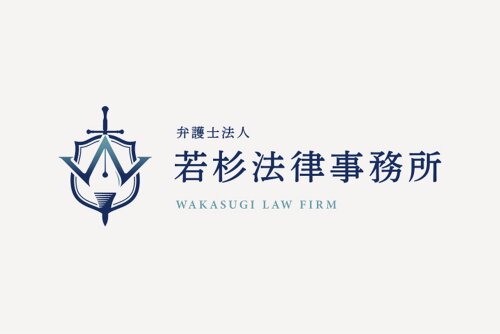Best Child Custody Lawyers in Fukuoka
Share your needs with us, get contacted by law firms.
Free. Takes 2 min.
Free Guide to Hiring a Family Lawyer
List of the best lawyers in Fukuoka, Japan
About Child Custody Law in Fukuoka, Japan
Child custody in Fukuoka, Japan is governed by national laws under the Japanese Civil Code, but local courts and family law practitioners in Fukuoka play a vital role in implementing these laws. Custody issues generally arise when parents divorce or separate, and can also occur if one parent passes away or is unable to care for the child. The best interests of the child are the primary consideration in all custody matters. It's important to understand that Japanese legal procedures and cultural perspectives on custody might differ from those in other countries. This guide aims to provide a straightforward overview for those facing child custody concerns in Fukuoka.
Why You May Need a Lawyer
Navigating child custody matters in Fukuoka can be complex, especially when emotions are running high or when international elements are involved. You may need a lawyer if:
- You are going through a divorce or separation and cannot agree on custody arrangements with the other parent.
- You have concerns about parental abduction or international relocation of your child.
- You want to modify an existing custody arrangement due to changes in circumstances.
- The other parent is not following the agreement or court order.
- You are facing allegations of neglect, abuse, or incapacity.
- Your case involves cross-cultural or international factors.
- Your parental rights are at risk of being terminated or limited.
A lawyer can help protect your rights, guide you through the court or mediation process, prepare the necessary documents, and help ensure the best interests of your child are addressed.
Local Laws Overview
Child custody laws in Fukuoka are primarily based on the Japanese Civil Code, but local courts may have their own procedures and interpretations. Here is a summary of key aspects relevant to child custody:
- Sole Custody System: In Japan, the law generally grants sole custody to one parent after divorce. Joint custody is usually only possible if parents remain married.
- Types of Custody: Custody is divided into two types: legal custody (parental authority) and physical custody (day-to-day care). The custodial parent has decision-making authority for the child.
- Best Interests of the Child: The Family Court in Fukuoka will consider the child's welfare, stability, and wishes based on their age and maturity when making custody decisions.
- Visitation Rights: The non-custodial parent usually has the right to visitation (access) unless it would harm the child.
- Parental Agreement and Mediation: Parents are encouraged to come to an agreement themselves, often through mediation, before resorting to litigation.
- International Cases: Fukuoka courts handle international abduction cases under the Hague Convention, to which Japan is a signatory.
It's important to note that local Family Courts and the Family Court Mediation system play a crucial role in resolving disputes.
Frequently Asked Questions
What determines which parent gets custody in Fukuoka?
The Family Court considers the best interests of the child, including age, stability, and each parent's ability to provide care. The primary caregiver during the marriage is often favored, but all circumstances are reviewed.
Can we agree on custody ourselves without going to court?
Yes. Parents are strongly encouraged to come to an amicable agreement, which can then be formalized through Family Court mediation. If agreement is not possible, the court will decide.
Is joint custody possible after divorce?
Generally, Japanese law does not recognize joint custody after divorce. Only one parent is given legal (parental) custody, though both parents can be involved in the child's life where possible.
What legal process is involved in changing a custody arrangement?
Custody arrangements can be modified if circumstances change significantly. A petition needs to be filed with the Family Court in Fukuoka, which may require mediation or a new court decision.
Do grandparents or other relatives have custody or visitation rights?
Generally, custody is awarded to one or both parents. Visitation rights for grandparents or other relatives are not automatically recognized but may be considered if in the best interest of the child.
What happens in cases of international divorce or abduction?
Japan is a member of the Hague Convention, which provides a legal framework for resolving international abduction cases. The Family Court in Fukuoka can assist with these cases.
Can a child decide which parent to live with?
The child's wishes may be considered, especially for older or more mature children, but the final decision rests with the court based on overall best interests.
What are the visitation rights for the non-custodial parent?
Visitation is generally allowed unless there are safety or welfare concerns. Details can be agreed upon by both parents or ordered by the court.
Do I need to attend mediation before going to court?
Yes. In most cases, mediation through the Family Court is required before litigation. This process aims to help parents reach a voluntary agreement on custody.
How long does the custody process take in Fukuoka?
The timeline can vary. Mediation may be resolved in a few months, but if court proceedings are needed, it can take longer depending on the complexity of the case.
Additional Resources
For more information and assistance with child custody matters in Fukuoka, the following resources may be helpful:
- Fukuoka Family Court - Handles mediation and child custody cases.
- Japan Legal Support Center (Houterasu) - Offers free or low-cost legal consultations.
- Local city and ward offices in Fukuoka - Provide guidance on family registration and parental authority matters.
- Ministry of Justice Japan - Issues information about family law and Hague Convention cases.
- Bar associations and family law attorneys in Fukuoka - Can give specialized legal advice.
Next Steps
If you are facing child custody issues in Fukuoka, the first step is to gather all relevant documents, such as family registration, birth certificates, and any agreements between parents. Consider seeking preliminary advice from the Japan Legal Support Center or a local attorney. If you and the other parent cannot reach an agreement, initiate mediation proceedings at the Fukuoka Family Court. For complex or international cases, it is highly advisable to consult a family lawyer with experience in Japanese and international child custody law. Maintaining a focus on your child's welfare throughout the process is essential.
Lawzana helps you find the best lawyers and law firms in Fukuoka through a curated and pre-screened list of qualified legal professionals. Our platform offers rankings and detailed profiles of attorneys and law firms, allowing you to compare based on practice areas, including Child Custody, experience, and client feedback.
Each profile includes a description of the firm's areas of practice, client reviews, team members and partners, year of establishment, spoken languages, office locations, contact information, social media presence, and any published articles or resources. Most firms on our platform speak English and are experienced in both local and international legal matters.
Get a quote from top-rated law firms in Fukuoka, Japan — quickly, securely, and without unnecessary hassle.
Disclaimer:
The information provided on this page is for general informational purposes only and does not constitute legal advice. While we strive to ensure the accuracy and relevance of the content, legal information may change over time, and interpretations of the law can vary. You should always consult with a qualified legal professional for advice specific to your situation.
We disclaim all liability for actions taken or not taken based on the content of this page. If you believe any information is incorrect or outdated, please contact us, and we will review and update it where appropriate.












